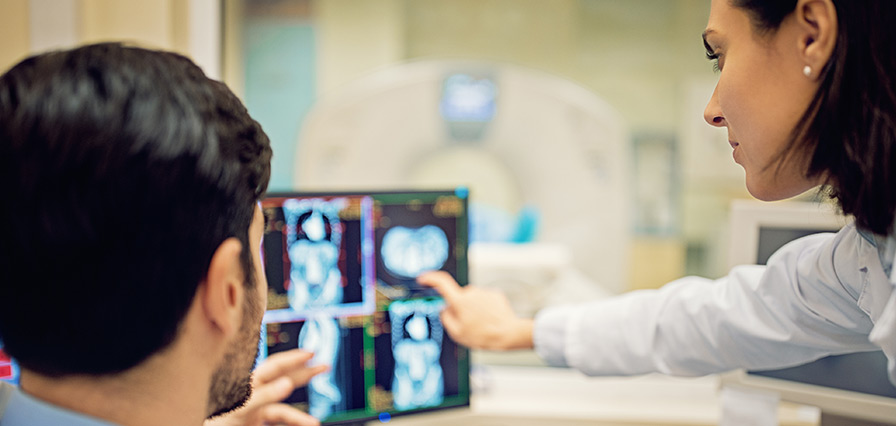
A low-dose CT at Baptist Cancer Center can identify cancer at its earliest, most treatable stages. If you are a current or former smoker, find out below if you qualify for a screening.
If you meet the qualifications, our patient navigator will be in touch.
You qualify for a low-dose CT screening if you:
When our patient navigators contact you, they’ll ask you questions about your health, tobacco use and smoking history. Then they’ll be able to recommend whether you should get screened and help you schedule an appointment.
Medicare and most private insurers cover these screenings with no out-of-pocket costs for patients who qualify. Follow-up tests and additional screenings after your initial scan may require a co-pay or deductible. Our patient navigators can help you understand your coverage.
If you meet the qualifications, our patient navigator will be in touch.
TAKE THE LUNG SCREENING QUESTIONNAIRE
Even if you are not a smoker, you may still be at risk for lung cancer. Most people with early-stage lung cancer show few symptoms, if any at all. Early detection through regular screenings lets you detect the disease early when it is more treatable, gives you more options for treatments, and provides you the best chance to beat cancer.
Many people with lung cancer have no symptoms before diagnosis, so screening for the disease can help detect it before it has spread and is more difficult to treat. If you have ever smoked, even if you have quit, take this questionnaire to determine if you are at risk for lung cancer and should get screened.
It is a test to check for disease in someone who may not have any symptoms. Some examples of cancer screenings include mammography for breast cancer, pap smears for cervical cancer and colonoscopies for colorectal cancer. Studies have shown that screening individuals at high risk for lung cancer with low-dose CT scans can lead to detecting lung cancer early — when it’s easier to treat and more likely to be cured.
Annual lung cancer screenings are recommended for 1) those who are considered heavy smokers (smoking an average of at least one pack of cigarettes a day for 20 years or two packs a day for 10 years), 2) those who are currently smoking or who quit in the last 15 years, and 3) those between 50 and 80 years old.
We perform a low-dose CT scan to get a diagnostic image of your lungs. The scan takes just a few minutes and uses a lower amount of radiation than a regular CT scan.
Yes. Medicare and most commercial insurances will cover those 55 years old or older for an annual test with no out-of-pocket expenses. However, additional testing and follow-up scans between screenings may have a cost, such as a co-pay or deductible. Please check with your insurance company to determine if testing is covered.
A machine called a CT scanner takes 3D X-ray pictures of your lungs using a small amount of radiation. The scan is quick and painless and requires no needles or dyes. Typically, there’s no need to remove your clothing for the test, and you can eat or drink normally before the test.
As with all cancer screenings, there are risks. For example, some cancers may still be missed, you may be exposed to radiation, and some scans may show spots on the lungs which turn out to be non-cancerous. When needed, your doctor may recommend additional testing to diagnose or rule out lung cancer. That could mean another low-dose CT scan, a minimally invasive tissue sample/biopsy or possible surgery, or other treatments.